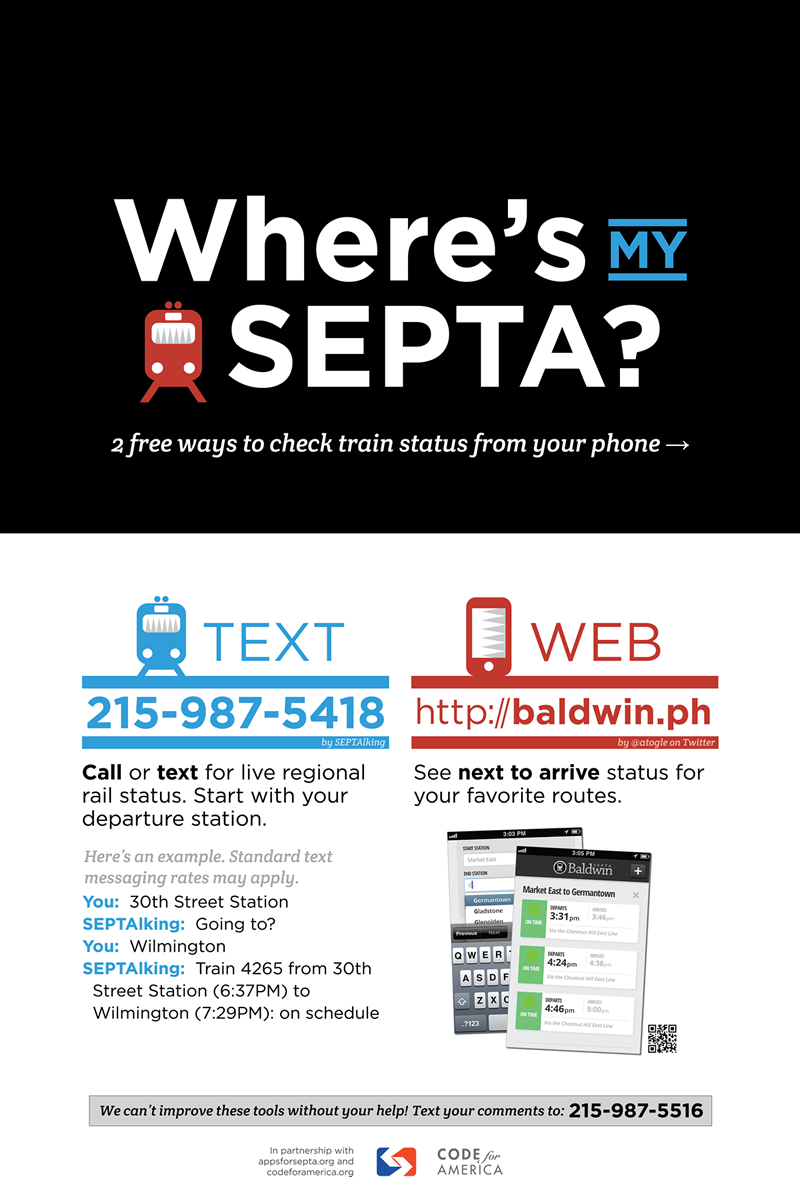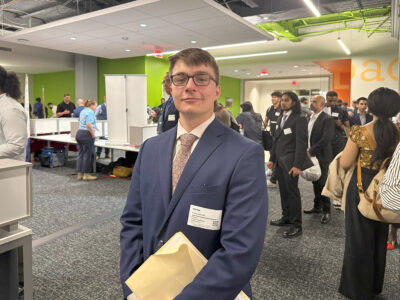Not all civic apps can live forever, and sometimes, instead of letting them disappear into the ether, developers shut them down.
Yesterday, Chief Data Officer Mark Headd wrote on his blog that he would retire SEPTAlking, an app he started building at the first Apps for SEPTA hackathon in Fall 2011 (more coverage here). The app let users call or text to find upcoming SEPTA Regional Rail arrivals and departures and was part of a recent Code for America and SEPTA marketing campaign to promote transportation apps. The app was used almost 20,000 times since December 2012, Headd wrote on his blog.
Below, Headd explained to Technically Philly why he decided to retire SEPTAlking. It’s also a nice reminder that before Headd was a city official, he was a civic hacker (that’s not to say that he doesn’t still participate in hackathons). Read Headd’s original blog post here.
“First, and most importantly, I don’t have the time to continue to maintain and improve the app in the way that I want to. The demands of my current job coupled with a growing family (we’re expecting our third child later this summer) and a move to Philadelphia have made life very complicated. So, from a personal perspective, keeping things working the way I think they should has become increasingly difficult.
I started building SEPTAlking when I was working as a developer evangelist at Voxeo Labs. Building apps was part of my job. I’d love to spend more time building civic apps, and I still get a chance to experiment and keep my skills sharp at the odd hackathon. But my job now is to get the raw material for civic apps – open data – to the public, and to engage the community around data to help generate value for the city. Besides, there are lots of people in Philly who are way better at it than me – one of the nice things about having a healthy, robust civic hacking community.
Also, I hope that I helped to accomplish two things with the app. First, Philadelphia is a city that faces particularly acute challenges with digital access. Building tools that serve communities that may not have ready access to traditional forms of access is important, and I hope this app helps spread that message.
Second, the app was part of what I think was a groundbreaking marketing campaign by SEPTA to market apps built by outside developers – that’s huge, and will hopefully act as an example for other governments.
Cost is [also] an issue. In addition to a small credit I got from Voxeo Labs, I’ve spent close to $500 out of pocket on messaging costs. Unfortunately, text messaging apps aren’t free. I could have tried to support it further through ads or more grants but right now, I don’t have the bandwidth for that.
All of the code for the app – as humble as it is – resides on GitHub for others to use if they see fit.”
Before you go...
Please consider supporting Technical.ly to keep our independent journalism strong. Unlike most business-focused media outlets, we don’t have a paywall. Instead, we count on your personal and organizational support.
Join our growing Slack community
Join 5,000 tech professionals and entrepreneurs in our community Slack today!




